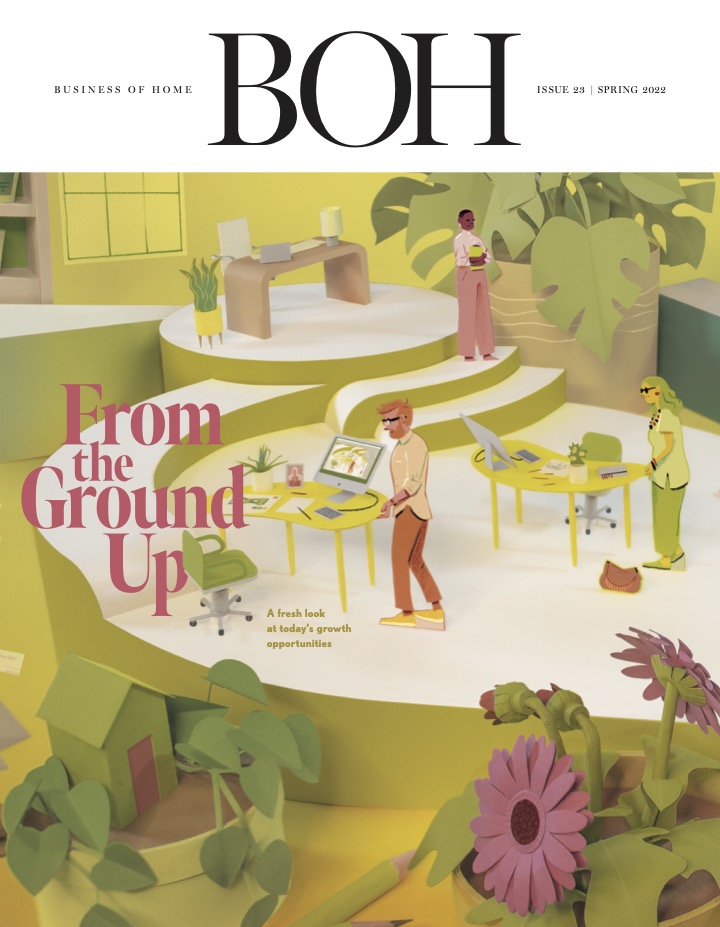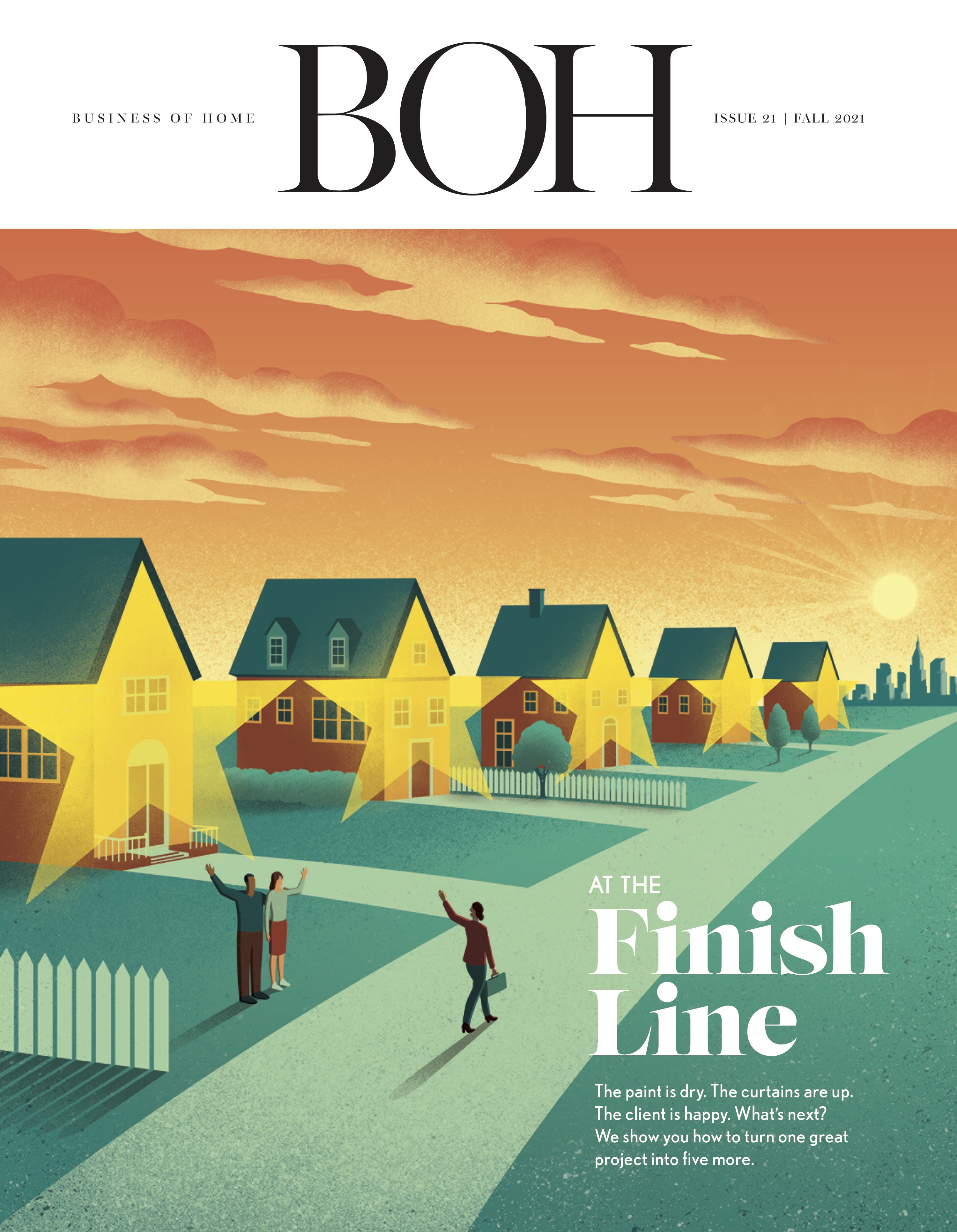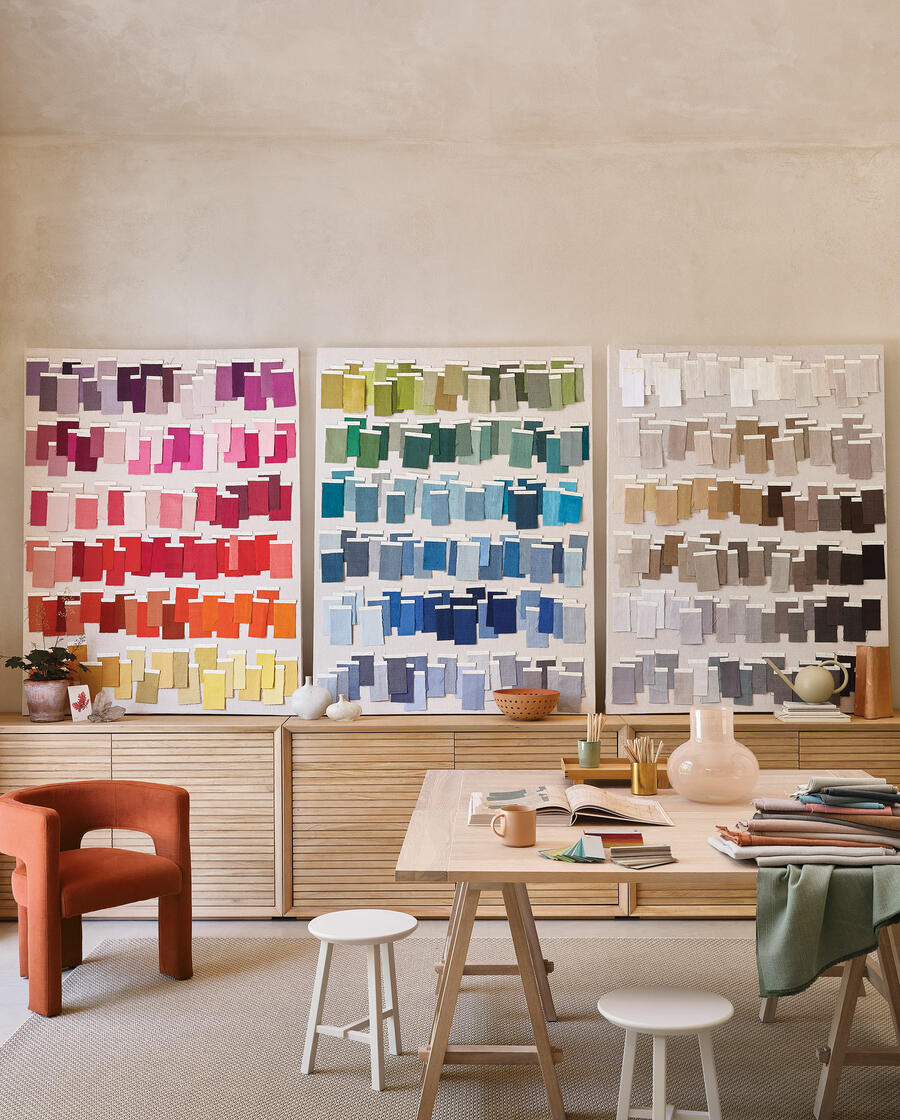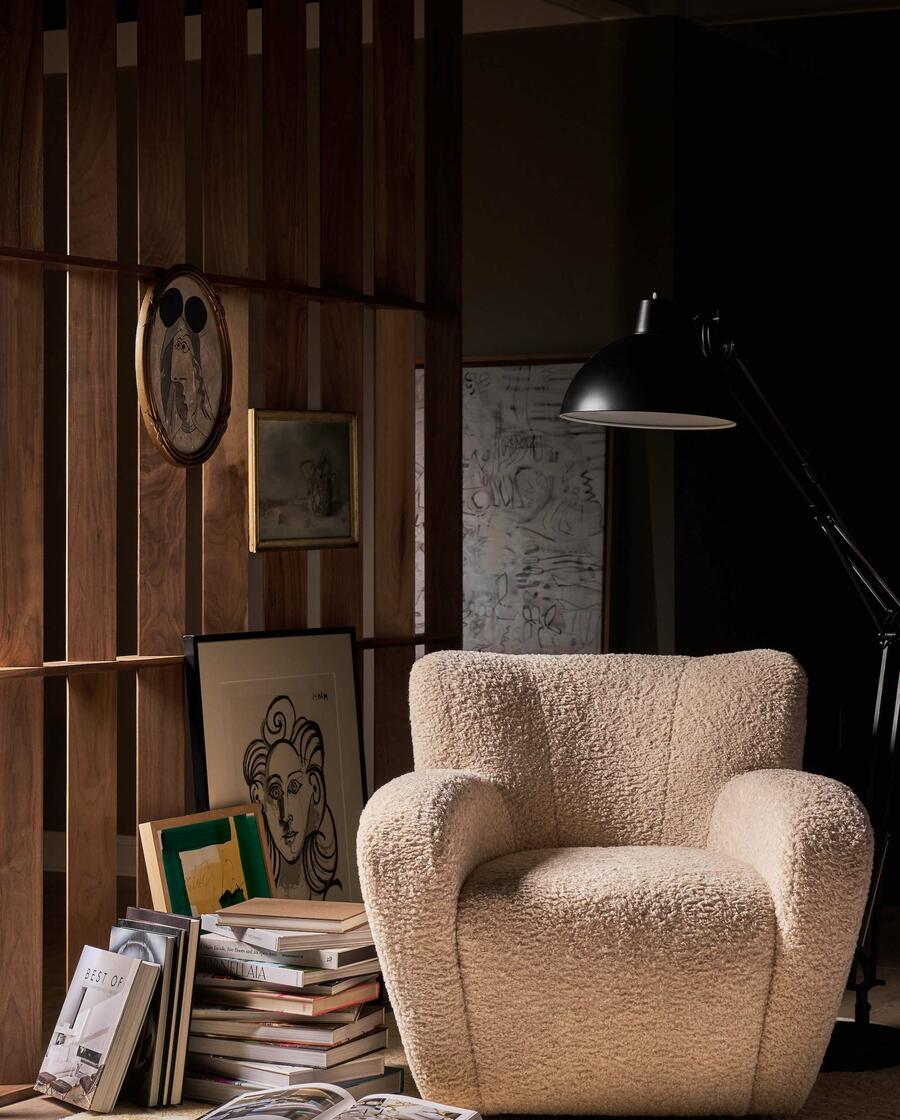By Katy B. Olson
In an industry often painted as an impenetrable fraternity, a number of leading young antiques dealers are emerging as part of Antiques Young Guns, a collective founded in 2011 in the U.K. by Gail McLeod of Antiques News & Fairs, George Johnson of Lady Kentmores Antiques, and TV presenter-author Mark Hill of Mark Hill Antiques & Collectables to unify dealers under 40. (The idea sprang from McLeod’s discovery of an online friendship. As she tells it, “I noticed a group of young dealers on Twitter chatting and exchanging trade views, price advice and general amusing quips to each other, about six of them. One night, I joined their chat and tweeted: ‘I am going to call you Antiques Young Guns!’”)
“In just three years, AYG became a force to be reckoned with in the U.K., with more than 100 members across all sectors of the antiques trade and huge support from key names in the industry," says McLeod. “It was only matter of time before we realized the potential for international growth, and naturally the U.S. was top of our wish list.” The group has crossed the Atlantic in partnership with U.S. Antique Shows, and today, Antiques Young Guns USA offers young American dealers a mentorship program, digital exposure through the Antiques Young Guns marketplace, a number of buying and selling events and media recognition. And, debuting this year, the Antiques Young Gun of the Year Award recently honored a coterie of the "Guns" for their contributions to the industry at November 14’s Pier Antique Show in New York City.
EAL sat down with some of the award honorees—Young Gun of the Year Margaret Schwartz, 31; Young Gun of the Year runner-up Rachel Hoffman, 29; and Brad Ketelhut, 39, who received the 2015 Ruby Lane Outstanding Achievement Award (an honor that the judging panel had created specifically for him)—to hear about the appeal, and the challenges, of working in an industry some have called exclusive.
Schwartz’s love of interiors and antiques led her to an early career at Martha Stewart Living Omnimedia; after learning about home decor and design there for four years, she left the media company and acquired The Summer House, her New Canaan, Connecticut, antiques and home design shop. “I always knew I wanted to have a mix of antiques in my shop, but wasn’t quite sure I had the background for it,” Schwartz tells EAL. “I put aside my doubts and decided to pursue my dream and invest more in antiques at The Summer House. I love the beauty of antiques, but there is so much more to appreciate about these treasures than appearance. Each antique has its own unique story, and I love researching the provenance and heritage of these pieces.”
Ketelhut’s antiques background bridges generations: His father is a longtime Americana and folk art dealer. Ketelhut, of Vail, Colorado’s Alpen Art & Antiks remembers: “When I was 10 or 11, I needed to do a report and speech for school focused on the Revolutionary War. I brought in several pieces from home that were from the period of the Revolutionary War and gave the speech with real props from the period.” Ketelhut strayed from the family business for a time, earning an MBA and MS in finance with the intent of pursuing an investment banking career, before returning to the industry—and the hunt. “I spent a little time helping my dad in my early 20s and started to find myself really needing to buy certain pieces, even though I had no money at the time,” he says. “This is when I knew I had the addiction and was in trouble!”
Hoffman, senior operations manager at Turn of the Century Antiques in Denver, Colorado, was also born into the industry; as a child, she began doing odd jobs around her mother’s antique doll shop, and as she grew up, became interested in marketing and sales. “One thing I loved about the dolls is that they were always selling and the customers were so passionate,” she shares. “I began to fall in love with the process of helping relive their childhood or build memories they didn’t have as a child.”
What are the challenges that young antiques dealers face?
Margaret Schwartz: All dealers are facing many of the same challenges, regardless of how long you have been in the industry. The landscape of the industry is changing, and we are all working to figure out what that means and what the best way forward is. Owning a freestanding brick-and-mortar store, I would love to see the resurgence of Main Street antiques shops across America, but I don’t think that is how consumers or trade members shop anymore. In New Canaan, where my store is located, two antiques shops have closed in the past year. If we work together instead of competing against each other, we would build a stronger industry. Rather than seeing shops close, I would like for dealers to join together in collectives. I’m very much inspired by the success of overseas collectives like Lorfords at Babdown.
These online and brick-and-mortar collectives present groups of reputable, distinguished dealers that provide the “one-stop shop” experience so many clients are looking for. Navigating the e-commerce portion is a real challenge in a competitive marketplace, and these online collectives are helping with that. And, of course, joining AYGUSA has connected me with other young dealers who want to share their experiences, successes and challenges so we can learn from each other.
Rachel Hoffman: Young dealers face the same challenges that older dealers do. This is not an easy industry. Someone will always disagree or think you don’t know what you are doing, but at a young age, that can be especially hard. I have learned some tough lessons.
Brad Ketelhut: It is a career with decently high barriers to entry. It takes quite a bit of capital, as antique dealers tend to buy and own their inventory, as compared to contemporary galleries that carry their work on consignment. It is also difficult to develop an eye for what to buy. There are programs in place with organizations like Christies and Sotheby’s that will give you a glimpse into the industry, but nothing takes the place of working in the business. My advice is to find a good dealer that you can work for and that will mentor you. This can also be difficult, as most dealers are one-man/woman shows.
How did you first connect with AYG? What does it mean to be an AYG?
M.S.: I joined AYG by a very happy coincidence. In June of 2014, I had a trip to London planned, and I reached out to The Antiques Diva & Co, an antiques touring company, to organize an antiques buying tour during my trip. I still consider myself so lucky to have been paired with Gail McLeod, one of the founders of AYG, on that first tour. We shopped in and around London, and it was one of the best days of my life; it was the day when I realized I needed to pursue antiques full-time.
AYG is an incredible opportunity for young dealers to have a built-in support system and network of other industry members. Some of us started out in antiques, and some of us switched midstream. It’s a place where we can all come together and work towards a common goal: preserving knowledge, sparking joy in a new generation of collectors and being part of the change the industry is going through. U.S. Antique Shows has personally helped me understand what it takes to exhibit at the shows. They have helped me with everything from shippers to what kind of lighting I should be using in my booth.
R.H.: To be an AYG means that I am paving the way for a new generation to teach their children and friends that things aren’t disposable. We live in a disposable society. A lot of people consider most things disposable: furniture, plates, everything! As a young, and I like to think, hip, person in the industry, I hope to make collecting, appreciating and loving history “cool” again. The opportunities within the organization are paramount to the fact that AYG builds little communities and unites and empowers us.
B.K.: I know what the U.K. has built and am proud to be one of the first members here in the U.S. Sadly, I will be a Young Gun for just this year, as I turn 40 next year. This will present an opportunity for me to become a mentor to Young Guns. I have known some of the biggest “old-time” dealers in the world and the years of conversations that I have had with them, I have taken to heart and listened to the lessons that they have taught me.
I am a big fan of networking with dealers. Many of the deals that I do with clients these days are from the client asking for a particular piece that I do not have; I have a long list of dealers that I have done business with over the years, and many times, I can source that piece from one of my connections. I [also] have dealers coming to me with specific requests that I have been able to fulfill over the years. AYGUSA has the ability to create an excellent networking opportunity for younger dealers, both in learning lessons from industry mentors and gaining actual sales through the knowledge of available inventory that they did not know existed before making the new connection.
What is it about this industry that you love? What are its challenges?
M.S.: I love the sense of history and pride the industry has in connecting the craftsmanship of the past and repurposing it for today’s use. In antiques, there is always something to learn and new goals to achieve. Every job has its challenges, and I always thought that old cliché of “If you love what you do, you’ll never a work a day in your life” was too cheesy! Then I started devoting my time to antiques.
R.H.: I really love the stories behind my items. When I get an old, tattered teddy bear that has half his hair missing and you know was loved so dearly by someone, just holding it feels good. The stories and reliving history through objects is one of the things I love.
One of the things I dislike is that a lot of people equate age with fair market value: “This is 100 years old, so it must be worth a fortune.” I have to explain the truth and some people don’t like hearing it. I deal with a lot of different people every day, and most are wonderful, but like any retail store, we have a lot of challenging characters. I wish people would start appreciating things more and quit trying to “downsize.” Let’s upsize! Yes, you do need this tea set!
B.K.: I love the thrill of the hunt, the friends we have made over the years with other dealers, the unbelievable clients we have come to know, and that every day is a totally different learning lesson or challenge. People ask, “What would you do if money was no problem?” I would do exactly what I am doing!
Can you share advice with up-and-coming dealers?
R.H.: When I started out as an appraiser, I thought I was hot stuff and knew so much, and luckily, I learned some great lessons early on that really grounded me. I think the best way for me to deal with challenges being a young person in business is to stay humble and know that everyone you meet knows something you don’t.
B.K.: Advice that was given to me from much more established dealers was to start off small and manage my growth. The market will go up and down, and in the down times, you will want to be as small a target as possible with overhead. Study about each piece you buy and take the time to understand what other dealers are asking for that type of piece on sites like 1stdibs. The more knowledge you have about what the market rate is for a particular piece, the better chance you have to buy right and sell for a profit. After you build up an inventory, you can do a smaller regional show, which is easier to get into and less costly. After you do a few of these shows, you can move up to higher-end product and show at higher-end venues.
The other piece of advice I have taken to heart is to be ready to constantly adapt. I have clients from Mexico and South America that will only buy midcentury and abstract, so I am getting into this section of dealing and learning about a whole new area of the industry.
Learn more about AYGUSA and the original U.K. organization, AYG.





























